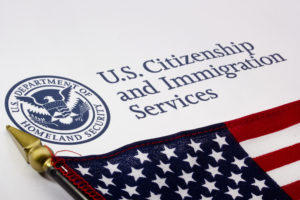DHS to Implement New Public Charge Rule, Effective February 24, 2020
January 31, 2020
On January 27, 2020 the Supreme Court voted 5-4 to lift the injunction on the Trump Administration’s Inadmissibility on Public Charge Grounds final rule (“Final Rule”). As of January 30, this will allow the Department of Homeland Security via USCIS to begin implementing the rule effective Feb. 24, 2020.
What is the Final Rule?
The Final Rule was initially issued in August and was originally scheduled to be effective in October 2019. It outlines how DHS will determine whether a foreign national is inadmissible to the United States based on their likelihood of becoming a public charge at any time in the future, as set forth in the Immigration and Nationality Act. This rule will not take effect in the State of Illinois, where the rule remains enjoined by a federal court.
A judge had temporarily blocked the rule from taking effect in October via an injunction. The judge stated that the controversial policy could cause irreparable harm and cited the reasoning for the injunction as “the balance of equities and the interests of justice.” As we wrote in August, the public charge ground of inadmissibility is not new, having been in existence since the 1880s and codified under INA § 212(a)(4), which states that an individual is inadmissible to the United States if they are “likely to become a public charge”. This provision, subject to the interpretation of the administration, has been used throughout the nation’s history to deter and prevent immigration of foreign nationals of certain backgrounds.
The Final Rule will broaden the existing barrier to immigration that currently states that an individual is inadmissible to the United States if they are dependent on Supplemental Security Income (SSI), Temporary Assistant to Needy Families, and/or long-term care. The relevant grounds for inadmissibility will expand to additionally exclude individuals that depend on Medicaid, the Supplemental Nutrition Assistance Program (SNAP), the Section 8 Housing Choice Voucher Program, the Section 8 Project-Based Rental Assistance, and Public Housing. Medical conditions, employment history, occupational licenses, education, and English proficiency would also be used to evaluate whether individuals applying for or benefiting from nonimmigrant visas and permanent residence could become a “public charge.”
The Final Rule will impact those applying for adjustment of status, as well as those with nonimmigrant status. For more information on who will be affected, what it means to be a “public charge”, and how the public charge rule will be implemented, see our previously published article and the USCIS news release.
What are the next steps?
Unlike the initial rule, this Final Rule prohibits DHS from considering a foreign national’s application for or receipt of certain non-cash public benefits before Feb. 24, 2020 when deciding whether they are likely at any time to become a public charge. Similarly, DHS cannot consider the receipt of public benefits by applicants for extension of stay and change of status before Feb. 24, 2020 when determining whether the public benefits condition applies.
This rule will only affect applications filed on or after February 24, 2020, so it is important to file any potentially affected applications as soon as possible. USCIS will post updated forms, submission instructions, and Policy Manual guidance on the USCIS website and USCIS Policy Manual during the week of Feb. 3, 2020. This may include new or additional forms for those seeking to adjust or extend status and may include modified or updated forms for those seeking to obtain or extend nonimmigrant status. After Feb. 24, 2020, everywhere except in the State of Illinois, USCIS will reject prior editions of forms if the form is postmarked on or after Feb. 24, 2020. Should you wish to hear more about this rule and how it may affect your immigration proceedings, please contact LHSC to schedule a consultation with one of our attorneys.
TAGS: DHS, Green Card, Public Charge, Supreme Court, Trump, USCIS
July 16, 2025
Department of State Releases August 2025 Visa Bulletin The DOS released its August 2025 Visa Bulletin. For August 2025, USCIS determines that for all family-sponsored preference categories, you...MoreJuly 10, 2025
TPS Terminated for Nicaragua On July 8, 2025, DHS Secretary Noem announced the decision to terminate Temporary Protected Status for Nicaragua. This termination is...More




